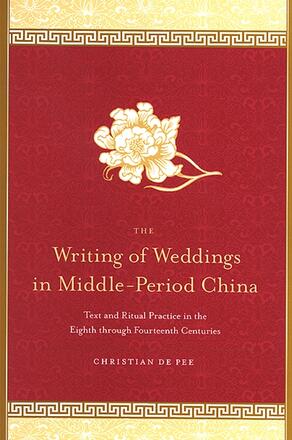
The Writing of Weddings in Middle-Period China
Text and Ritual Practice in the Eighth through Fourteenth Centuries
Alternative formats available from:
A groundbreaking work that treats writing as a ritual practice and texts as ritual objects.
Description
Approaching writing as a form of cultural practice and understanding text as an historical object, this book not only recovers elements of the ritual practice of Middle-Period weddings, but also reassesses the relationship between texts and the Middle-Period past. Its fourfold narrative of the writing of weddings and its spirited engagement with the texts—ritual manuals, engagement letters, nuptial songs, calendars and almanacs, and legal texts—offer a form and style for a cultural history that accommodates the particularities of the sources of the Chinese imperial past.
Christian de Pee is Assistant Professor of History at the University of Michigan.
Reviews
"…The Writing of Weddings in Middle-Period China … beautifully marries pathbreaking insights drawn from different disciplines, including gender studies, archaeology, and cultural anthropology." — Philosophy East & West
"Christian de Pee has written an extraordinary book … The heart of the book is de Pee's masterful textual analysis … de Pee is only bringing 'another' perspective, albeit … a very important and brilliantly presented one, to our search for the 'truth' about China's middle period." — Journal of Asian Studies
"…recommended to scholars of Chinese social history and anthropology for its textual sources and detailed information." — Journal of Chinese Religions
"In many ways this is a remarkable book. It is replete with detailed and interesting data that relate to the celebration of weddings in the 'middle-period' of China's history—the Tang, Song, and Yuan dynasties." — Journal of the Royal Asiatic Society
"De Pee presents a new theoretical approach to Middle-Period history. In so doing he sees texts as ritual objects in themselves (in various historical forms, often no longer extant), and he sees writing as a ritual practice embedded in a historical context. This book is pathbreaking and highly erudite. It sets a new standard for historical inquiry in the China field. It will unquestionably be recognized as a seminal work in its own field and beyond." — Bettine Birge, author of Women, Property, and Confucian Reaction in Sung and Yüan China (960–1368)